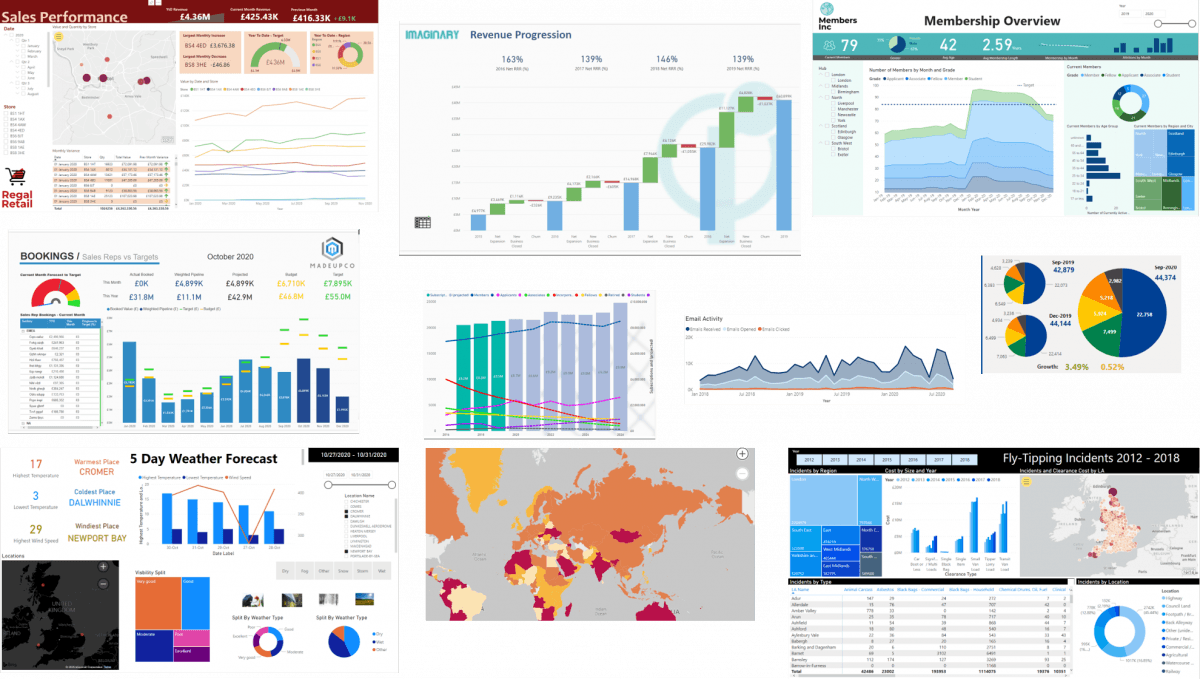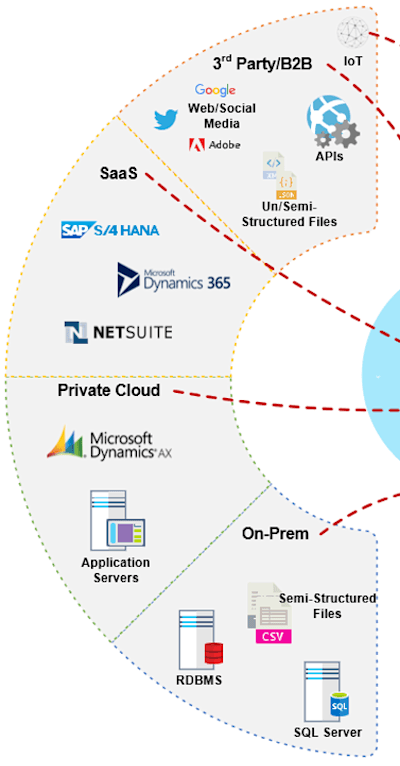Data Analytics Consultancy Services
Helping You Bring Your Data to Life
Unlock the full potential of your business data with our expert data analytics consultancy services. Transform complex data into actionable insights for data-driven decision-making.


Data Analytics Consulting Service
PTR are a Microsoft Solutions Partner AI & Azure Data and we have been providing data analytics consultancy and training services for over 30 years. Over this time we have worked with numerous data anlytics platforms, across many industry sectors, and with wide and varied datasets. Our collaborative and mentoring style of consultancy helps our clients stay in control of their data analytics solutions by educating and supporting client teams, nurturing and empowering them to have the confidence to take their data analytics solutions into the future. Of course, if you would like us to take control, overseeing, designing, implementing and supporting your whole data analytics solution we are happy to do that for you.
What are your challenges?
You want to turn your most valuable business asset, your enterprise wide datasets, into a central one-truth repository and business model to facilitate the provision of interactive, insightful and engaging reports and dashboards that give a 360 degree view of your organisations key performance indicators to key business stakeholders at any time and from anywhere, enabling data driven business decisions.
So what is stopping you?
Data locations, data ownerhsip, security & governance, disjointed applications and datasets, poor quality data, a mix of structured and unstructured data, a need to migrate from on-premise to cloud based data solutions, big data sets that are too large for your historic/current reporting methods, limited access, you think AI and Machine Learning can benefit your business to uncover data trends and stories, but don't know where to start, and more.

How can PTR help?
We have been offering data analytics consultancy services for over 30 years and have a wealth of experience that can help you to untangle your complex web of data, governance, infrastructure and data analytics needs to deliver data driven business intelligence solutions that will help drive key business decisions.
First of all let’s check your industry…
Financial
Retail
Supply Chain
Insurance
Membership
Local Authority
Manufacturing
Travel
Waste Management
Event Management
Media
Housing
Health
Other?
We have worked with integrating data from a wide range of systems including financial, sales, retail, supply chain, logistics, membership, project management, and across a wide variety of data platforms. We have also worked on data sets from very specialised industries and applications.
To a certain extent all organisations face the same challenges when it comes to their data and being able to use it effectively and quickly to get answers that will drive business decisions:
The number 1 challenge is:
“I don’t have the answer just now, I’ll come back to you!”
Regardless of industry type why is it so difficult to get an instant answer to a question about your organisation’s performance?
The source data is too complex or raw
It takes too long to compile reports
Reports are compiled manually and are prone to errors
Reports are inconsistent due to multiple definitions of business metrics
Reports are incomplete due to inaccessible or disparate datasets
Reports are not interactive to allow different views of the data
Static report layouts make it difficult or impossible to investigate data anomalies
“You should be able to an instant and trustworthy answer to a question from your data!”
With the current technologies available it is possible to get an instant and trustworthy answer about your organisation’s activities to assist with swift decision making, but it requires a good deal of planning and a robust and futureproof Data Strategy.
Why?
The reasons are plentiful, but let's pull out just a few:
Well, one of the reasons is duplication, multiple definitions, multiple identities
Another reason is data from different systems being located in different places – some on-premise, some online or cloud based.
Another reason is different data ownerships, different data management teams, different security policies
Another is the data sources being in complex and unfriendly formats
Another is data quality
The list goes on, but we’ll look at these five for starters.
Duplication and Multiple Definitions of Business Entities
Because your data is in many different places, in many different formats, owned by many different departments, and often developed and managed independently of any other datasets.
Let’s take an example:
How many versions of a client do you have across your IT systems?
A financial accounts client record
A sales client record
A service call client record
A medical client record
A delivery client record
A subscription client record
An online portal client record
With all of these different definitions and uses of client records come different sets of attributes, different unique identifiers and reference codes, and relationships to different business service records. So how do you relate such different versions of a client and ensure you capture all of the relevant attributes?
Distributed Data
Data extraction methods vary enormously across different applications. Some may be accessible via interfaces such as OLEDB, ODBC or other application APIs, but others may only be accessible via CSV exports, web services, Excel spreadsheets, or a host of other scenarios. The following graphic shows a few common data sources, but there many more proprietary data sources that hold valuable data for data analytics purposes. Our BI team has a wealth of experience in extracting and integrating data from a wide variety of data sources.

Multiple Owners & Differing Security Policies
Software applications in use across an organisation will be sponsored/owned by different business units. With this will come independent teams looking after the applications and underlying data as well as varying levels of access rights, and differing data sensitivity levels for some data sets. Data governance may make it very difficult to access certain data sets without many layers of red tape.
Challenging Data Source Formats
The data you are working with top draw insights and carry out data analytics is not always easily accessible in sources such as database tables and excel spreadsheets. Sometimes it is only available in more complex formats such as XML, and that requires a lot more time and effort to prepare it for analysis.

Data Quality
Many applications allow for free text data entry and were developed with little consideration for data analytics needs. This leads to many variations of the same thing such as a category value. It is also likely that data is missing from key fields that are required for reporting purposes. It is also likely that there are many typing errors and spelling mistakes in freehand text fields. The following example shows an extract of SQL used to generate a category from three different stored fields as the category is not stored natively.

Date strings cause huge problems when working with multiple data sources.
Again, we could go on, but even considering these data quality challenges you can see that before any kind of reliable analysis can take place data cleansing, data validation and data preparation will need to take place before the data is ready for analysis.
Data Strategy & Analytics - How can we help?
We have only highlighted five challenges here, but the reality is that you will face many more than four on your journey to a successful data analytics and business intelligence solution. So you start to see that getting instant answers to your business data questions is not straight forward and requires a lot of processes before it can be achieved.
The varied data sources that you need to consider when making future decisions present major challenges with regards to data locations, data ownership, security & governance, disjointed applications and datasets, poor quality data, a mix of structured and unstructured data, a need to migrate from on-premise to cloud based data solutions, big data sets that are too large for your historic/current reporting methods, limited access, and more.
We have encountered most of the challenges you will face throughout our own data journey over the years, working with clients across a wide range of industries on a wide range of data analytics and business intelligence projects. Drawing on our experience we can help you plan your way to success.
You can have an integrated, automated, reliable and trustworthy "One truth" repository and business model, from which you can access business insights at any time from any place, and drive business decisions.
PTR specialise in offering independent, technology agnostic strategic advice and consultancy on the whole data platform, with a view to supporting a successful Business Intelligence platform implementation. Activities engaged in may include an initial audit of your data estate, engaging with stakeholders, business partners to establish the vision and needs of the business, architecting a suitable platform and solution, and then leading you through implementation
Through our Data Analytics and Business Intelligence consultancy services we can assist you with developing a Data Strategy and ingesting, preparing, and storing data from a wide variety of platforms ensuring you have a reliable one-truth repository of quality data. Our BI & Data Analytics consultants will assist with developing interactive and engaging reports and dashboards that through powerful visuals will enable you to tell the stories hiding behind your data.
A data journey can be complex and daunting, but we will work with you and your team to plan a timeline of achievable milestones enabling you to work at a pace that suits your resource and budget. Our mentoring style of consultancy means that we are by your side all the way, advising, guiding, coaching and supporting your team to ensure that you get the most from your BI platform and your BI team.
Building A Data Analytics Solution - Where do you start?
Share This Post
Frequently Asked Questions
Couldn’t find the answer you were looking for? Feel free to reach out to us! Our team of experts is here to help.
Contact Us